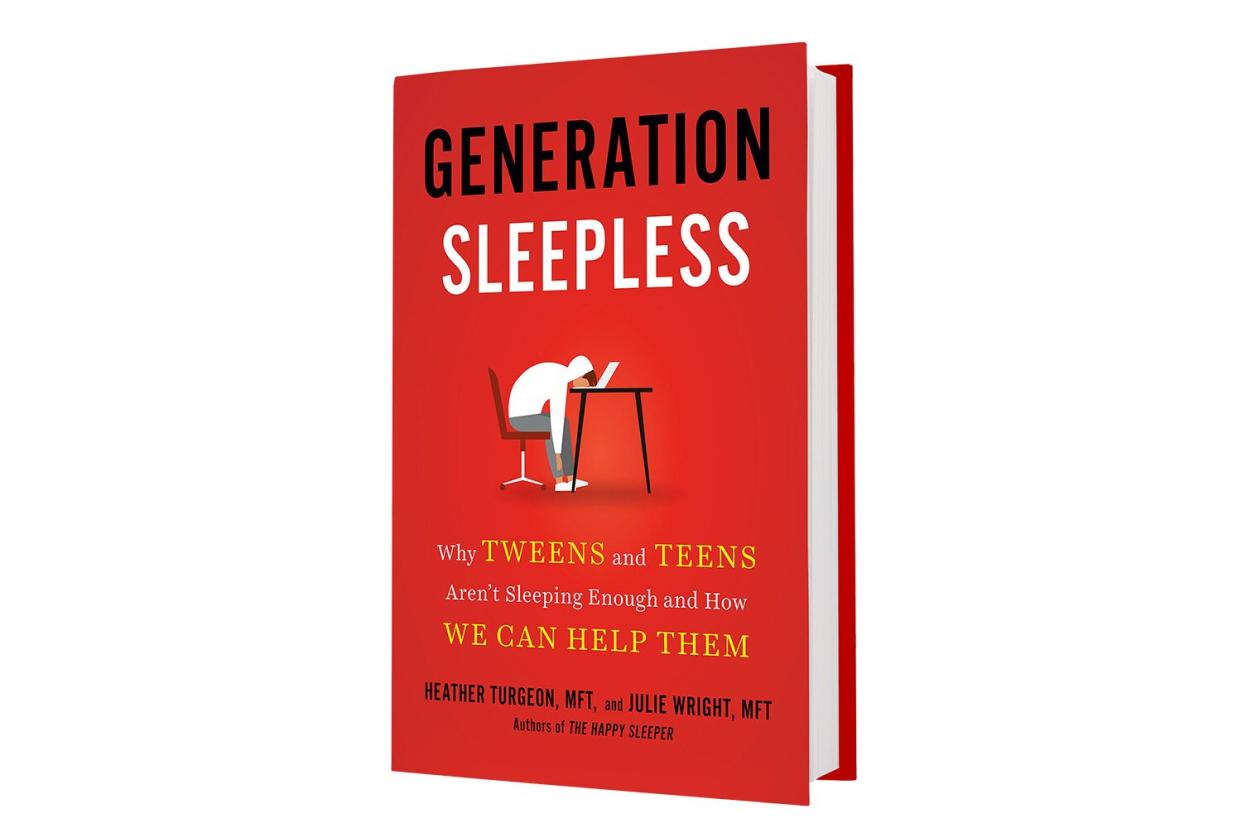How Poor Sleep Is Hurting Teen Mental Health

Recently, the Centers for Disease Control and Prevention reported that 4 in 10 teens feel "persistently sad or hopeless," and the American Academy of Pediatrics declared youth mental health a national emergency.
Psychotherapists Heather Turgeon and Julie Wright, authors of Generation Sleepless, say they know one reason why: teens today are sleep deprived. "There's a clear connection between sleep and mental health," says Turgeon. Adds Wright: "If you have a depressed and severely sleep-deprived teenager, it's hard to tease out the underlying causes until you get them sleeping well. Everyone's out there scratching their heads saying, 'Why are teens suffering so much?' They need to sleep. It's not the answer to everything, but it's the place to start."
About 86 percent of American high schoolers don't get the recommended 8 to 10 hours of sleep each night – and one study found that teens who regularly sleep less than five hours per night have an 81 percent increase in the likelihood of thoughts of self-harm. "When we don't get enough sleep, it changes how our brain works. It changes how we see the world," says Wright.
The good news? "So many issues affect teens that we can't solve quickly, from climate change to recovering from the pandemic to feeling isolated," says Wright. "Sleep is fixable — if we believe it matters enough." Turgeon and Wright explain the connection between sleep and mental health — and what parents can do to help.
Why is sleep so important for an adolescent brain?
WRIGHT: People think of teenagers like mini adults — and maybe even needing less sleep. People think, "They're young and tough." But their brains are undergoing a monumental reconstruction that happens mainly when they're asleep.
TURGEON: The brain is becoming more integrated and the prefrontal cortex more strongly wired, which is important for maturity. It's a vulnerable time of life. Teenagers optimally need 9 to 10 hours of sleep.
What happens when teens don't get enough sleep?
WRIGHT: Our prefrontal cortex becomes less active and that's the part of our brain that helps us to make good judgments, be reasonable, have perspective, take a pause and think about what to say, regulate our emotions. And the more primitive, reactive parts of our brain that are more likely to see the world through a negative lens becomes more active. Concentration goes down. Memory and decision-making are affected. Teens are more likely to make poor decisions and take dangerous risks. Car crashes, substance abuse and suicidality go up. Depression and anxiety increase. It's parents' laundry list of things they're most concerned about. It helps explain why teens seem so short tempered and grouchy and why relationships suffer.
Why aren't teens getting enough sleep?
TURGEON: Many elementary and high schools share buses, and high schools have the early shift. But teens have a delay in their biological clocks and need to sleep at a later phase, so we don't align our school day with the teen brain. Also, college is more competitive, and students have more activities, AP classes and homework. And since the advent of the smartphone, sleep took a dip. Technology is like the final wrecking ball.
Can't they catch up on the weekends?
TURGEON: Teens are telling us how sleep deprived they are when they sleep till noon. Going back and forth between two schedules, one that they have to stick to during the week, and then one when they desperately try to make up for sleep on the weekends, it's very confusing to the brain. It's really not ideal for teens to sleep in as much as they do on the weekends. We call it social jet lag.
What can be done to help?
WRIGHT: We'd love high schools to start later— 8:30 or later—and to give no more than an hour of homework each night. Teens can try waking on weekends within an hour or two of their weekday schedule. That combined with five to 10 minutes of morning sun keep the body clock regulated. Go outside first thing in the morning, even if it's cloudy. And families can create wind-down and bedtime routines to replace technology with other pleasurable activities like a game or watching a 30-minute show together or walking the dog. We suggest three routines in our book: wind down, bedtime, and morning routine to create a sleep bubble. People think of sleep as starting when you get into bed and ending when you get out of bed, but it doesn't. Sleep is affected by the entire day.

